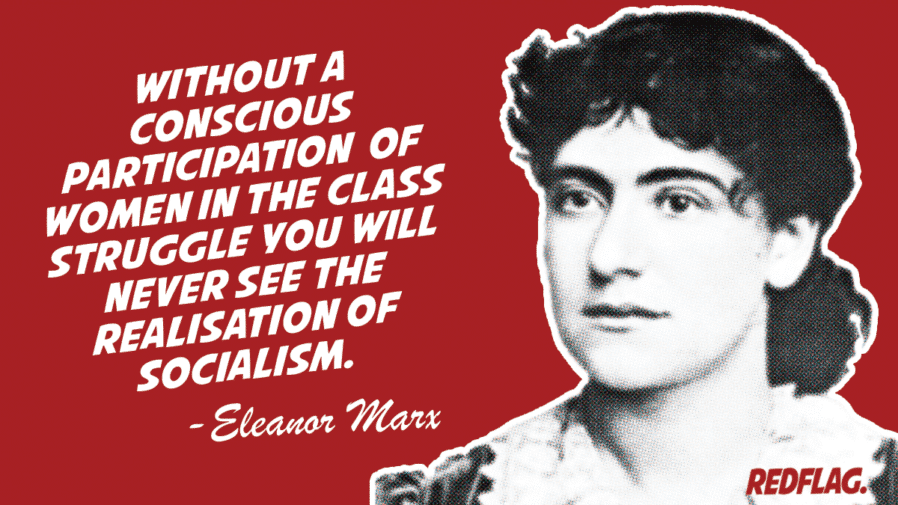

COMPLAINTS of sexual harassment and discrimination by women officers and activists often go unresolved in the unions and the Labour Party. This is a shameful record and one that must be corrected immediately.
The campaign group LabourToo, has submitted a dossier of complaints about such behaviour in the Labour Party. It consists of 43 anonymised stories from women across the party, detailing everything from inappropriate comments, to harassment and rape. What these accounts all have in common is that nothing was done, and many offences were carried out by people known to be serial offenders.
The problem of sexism does not stop at the Labour Party. The unions too can be very uncomfortable places for women to work, despite the fact that taking up grievances of unequal pay, sexist work practices and discrimination against women because they are women is a major part of any union’s day to day work.
The problem got so bad that Unite, Britain’s biggest union with an army of officers, commissioned an independent report into it, entitled, Women Officers in Unite. Then sat on it.
Ian Allinson, the victimised branch secretary at Fujitsu and left wing challenger to Len McCluskey in last year’s leadership election, leaked the report. It makes interesting, if somewhat disturbing reading.
The authors, Jennifer Hurstfield and Sarah Silcox, found that “almost 70% of women officers report they have experienced hostility at work because they are women” and 70% of those said Unite “members are primarily responsible for generating the hostility”.
In addition, “over half of women officers have raised a bullying or harassment issue with the union in the past five years and, in half of these cases, do not believe that the issue was handled at all well” with 40 per cent feeling “frightened at work because of a real or threatened incident”.
Underlying these shocking statistics is a macho, laddish culture that you don’t complain, you “work hard, play hard” and this is part of what some male bureaucrats (because that’s what they are, whatever their origins) think working class culture is.
Well they’re wrong.
The dominant ideology of any society exists to justify the prevailing forms of class rule and exploitation – or as Karl Marx put it 150 years ago, the ruling ideology is always the ideology of the ruling class.
That’s why an economic system which depends on the exploitation of the unpaid domestic labour of women through the family is saturated in sexism. Whatever the individual “feminist” views of bosses and politicians, for as long as they rule over a system in which women are an oppressed sex, sexist ideology will exist and manifest itself in various forms, whether that is sexual violence or the gender pay gap.
An ideology which is rooted in economic relations and reproduced through sexist popular culture and attitudes will inevitably find expression in the organisations of the left and the labour movement.
The struggle against sexism in the labour movement takes two forms. Immediately it means grassroots members creating structures for self-organisation to challenge sexist behaviour, and overcome the barriers to political life faced by women.
As with most capitalist companies, there are formal rules that are supposed to help victims take out grievances, but these are nothing if, as discovered in the Unite report, women feel intimidated and vulnerable if they do so.
There needs to be the right to call women’s caucuses – or Women’s Forums in the Labour Party – at every level, where women can support each other and hear testimonies before engaging in a formal procedure. Such caucuses should be able to feed in any general proposals on sexism in the organisation or other issues affecting women, like pay, to the union or Labour Party leaderships.
But fact that many longstanding and prominent party members and trade union leaders stand accused of repeat sexist attitudes and behaviour is not just a question of individual rotten apples. It has its material roots in the existence of a conservative Labour Party and Trade Union bureaucracy, which sees its task as mediating the conflict between capital and labour, rather than overthrowing the political and economic dictatorship of capital over labour.
The labour bureaucracy is a privileged caste, who, with few exceptions, draw pay and perks that insulate them from the lives of their members. The existence of a powerful caste at the top of the movement who derive material privileges from the conflict between capital and labour is clearly an obstacle to fighting the ideological hegemony of the ruling class within the working class movement. In the end, individuals not committed to the overthrow of oppressive capitalist social relations, cannot be consistent fighters for women’s liberation and social equality.
That’s why the self organisation of women must be allied to democratic reform of the labour movement. This is necessary not only to ensure women are represented and their concerns listened to and acted upon, but to break up the sclerotic and conservative bureaucratic castes that rule over the movement, replacing them with rank and file fighters, paid the average wage of those they represent and subject to election and recall.
Rebuilding the labour and social movements on these principles of anti-sexism and working class democracy, is a vital task for all socialists and feminists who want to see an offensive against sexism in our movement become the precursor to the final struggle for socialism and women’s liberation.